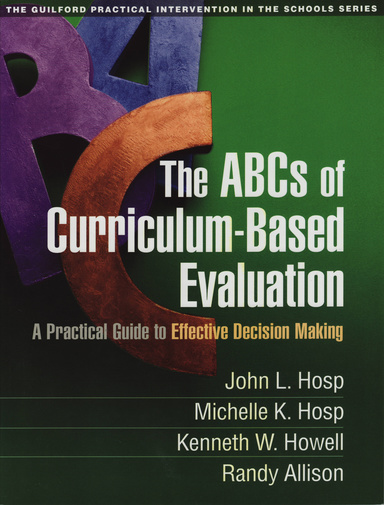
This spring, John Hosp, professor and chair of the UI College of Education Department of Teaching and Learning, is releasing a new book to help teachers resolve student learning and behavioral issues by making research-based decisions on what to teach and how to teach it.
The ABCs of Curriculum-Based Evaluation can be used as a textbook, but also as a workshop guide for in-service and pre-service teachers.

“It’s a system of decision making for educators. Teachers have so much information coming at them,” Hosp says. “It’s a way of organizing the structure of decisions they have to make. It helps them decide the best way to help students.”
The book is co-authored by three other experts on curriculum-based evaluation: Michelle K. Hosp, director of the Iowa Reading Research Center, Kenneth W. Howell, professor emeritus of special education at Western Washington University, and Randy Allison, the owner of Educational Solutions, LLC, an educational consulting firm.
Howell, who originated the term “curriculum-based evaluation” in the 1980s, has written textbooks on the topic. Curriculum-based evaluation is about aligning curriculum and assessment in order to increase the rate of student learning. It also aims to help educators better understand the break-downs that occur in the teaching-learning interaction.
The book is part of the Guilford Practical Intervention in the School Series, a book series that focuses on practical tools for educators.
“We wanted to make this book more practical: something that pre-service and in-service students could use in their classroom or administrators and school psychologists could pull off their shelves as a resources guide,” Hosp says.
Michele Pettit, a school psychologist at Grant Wood Area Education Agency in Cedar Rapids, found the book very useful.
“As educators we ask, how do we know what specific skills learners are struggling with, and how can we tell if our interventions are actually working? The approach in this thoughtful book strengthens this weak link in the school system,” says Pettit.